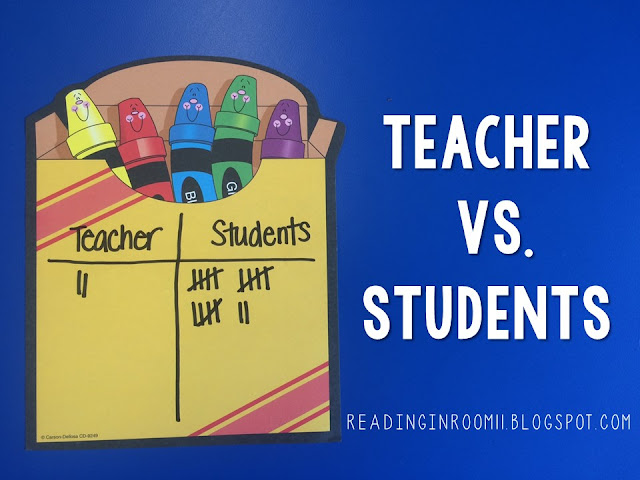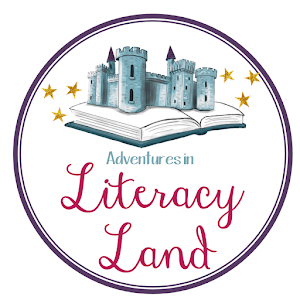Hi! My name is Jenn from Reading in Room 11 and I am thrilled to be joining The Adventures in Literacy Land. Through this blog I hope to share some reading strategies for struggling readers as well as some quick and easy interventions. I am about to start my 13th year of teaching as a K-5 Instructional Specialist in Reading, and 9 of those years were also spent as a Special Education teacher.
Teaching was not on my radar in any way, not even when I started college. As a kid, I always dreamed of being a veterinarian but when I realized I would have to give an animal a shot that was no longer a career path for me! Through a random series of events I ended up as a 1:1 Aide for a student with special needs in a preschool and that was truly a life changing event. From that moment on I knew that I had to be a Special Education teacher and so that is what I set out to do! Along the way I also became an Instructional Specialist.
I have a quick teacher tip for you that is a fun way to keep students engaged in a whole/small group activity - Teacher vs. Students! Groups ask to play this daily and it makes any activity much more fun. Spoiler Alert: the teacher never wins and that’s just how the kids like it! Here are some ways that I use it with my groups:
Same concept as #1 - if they get the word right they get a point and if they don’t I get the point. Depending on the student, I often offer a hint or give them another chance to read the word. I’m sure you are beginning to see why I never win, but that’s ok because the smiles on their faces when they get a point and I don't is worth it!
Thank you so much for taking the time to learn about me and how you can help engage and motivate your students with this simple game. Can you think of another way to use this game? Let me know in the comments!
Pin for Later:


4
Teaching was not on my radar in any way, not even when I started college. As a kid, I always dreamed of being a veterinarian but when I realized I would have to give an animal a shot that was no longer a career path for me! Through a random series of events I ended up as a 1:1 Aide for a student with special needs in a preschool and that was truly a life changing event. From that moment on I knew that I had to be a Special Education teacher and so that is what I set out to do! Along the way I also became an Instructional Specialist.
I have a quick teacher tip for you that is a fun way to keep students engaged in a whole/small group activity - Teacher vs. Students! Groups ask to play this daily and it makes any activity much more fun. Spoiler Alert: the teacher never wins and that’s just how the kids like it! Here are some ways that I use it with my groups:
1. Phonological Awareness Warm Up
When we start each group we practice phonological awareness. Each student takes a turn blending or segmenting a word and if they get it right their team gets a point - if they get it wrong I get the point. Since this is a task that can be tricky I am always generous with the points!
2. Letter Sounds/Sight Words/High Frequency Words/Phonetically Regular Words/any name you have for words on flashcards
Same concept as #1 - if they get the word right they get a point and if they don’t I get the point. Depending on the student, I often offer a hint or give them another chance to read the word. I’m sure you are beginning to see why I never win, but that’s ok because the smiles on their faces when they get a point and I don't is worth it!3.Self-Monitoring
I’m sure that we have all encountered a reader that just blows through the text and butchers sentences without stopping if something doesn’t sound right or makes sense. For this use of Teacher vs. Student each student in the reading group gets their own score card. When I take turns listening to them read I give them a point if they stop when something doesn’t make sense and another point if they use a strategy to decode the word. If I have to stop them to say they skipped a word/missed a word/read it incorrectly, I get the point. The score is often a lot closer when we play this way, but it is a great way to get kids to slow down and think about what they are reading.Game Over:
When the game is over the students are always happy with the win and sometimes that is enough! Other times I let them get an extra sticker or let one of the students take the score card home. Once in awhile I rip it up into hundreds of tiny pieces and throw it in the trash declaring that we will never play this silly game again because I never win!Thank you so much for taking the time to learn about me and how you can help engage and motivate your students with this simple game. Can you think of another way to use this game? Let me know in the comments!
Pin for Later:

















